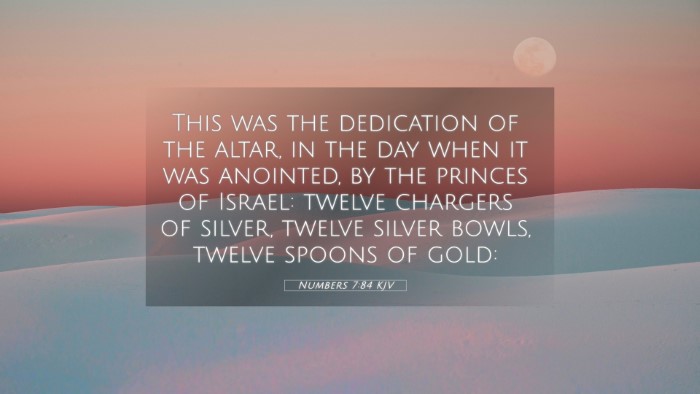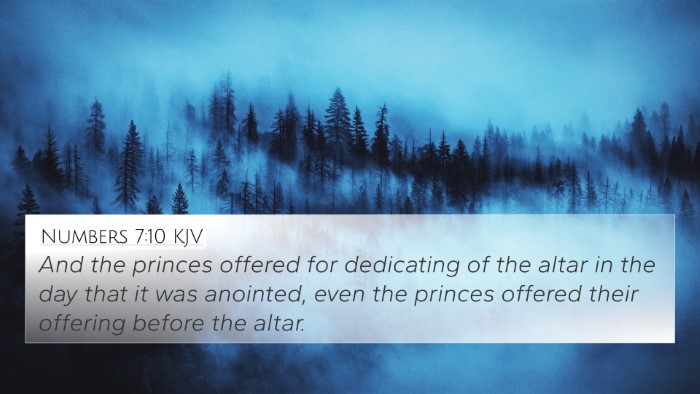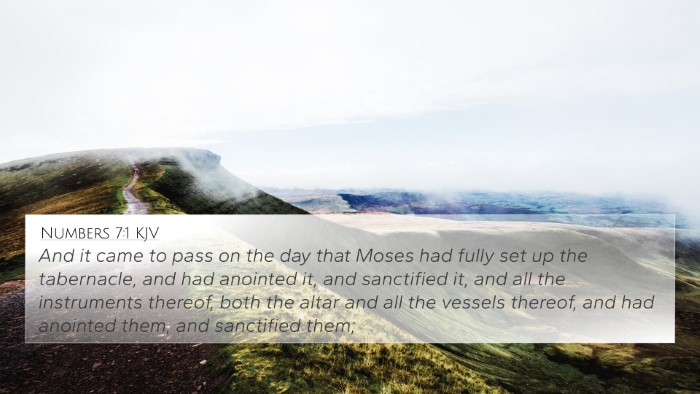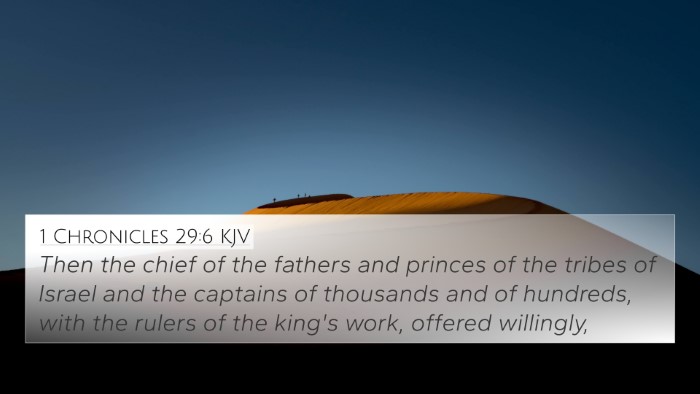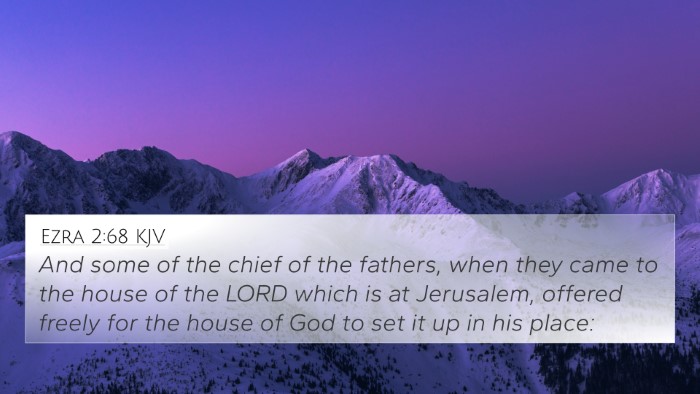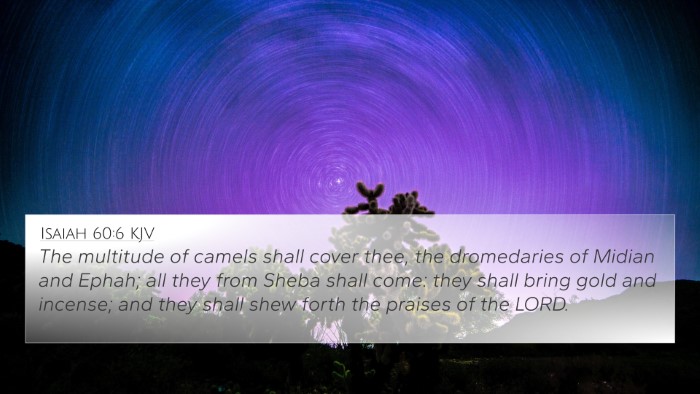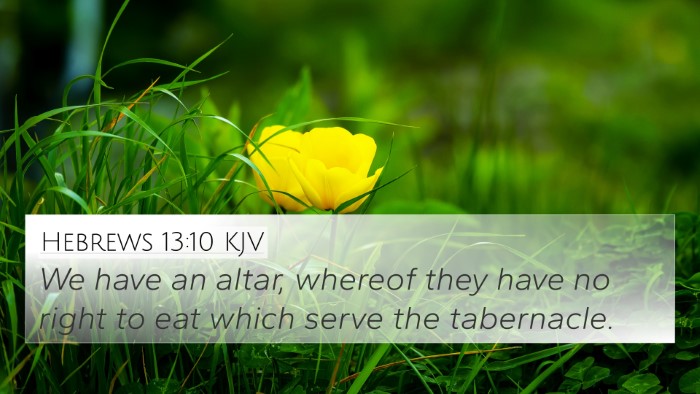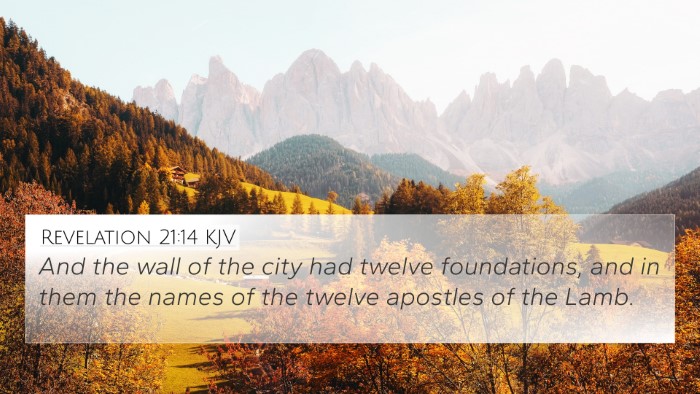Understanding Numbers 7:84
Numbers 7:84 states: "This was the dedication of the altar, in the day when it was anointed, by the princes of Israel: twelve charges of silver, twelve chargers of gold, twelve spoons of gold."
This verse encapsulates the ceremonial offerings made during the dedication of the altar by the leaders of the tribes of Israel, reflecting their commitment and reverence towards God. Let us delve deeper into its meaning through insights from various public domain commentaries.
Commentary Insights
Matthew Henry's Commentary
Matthew Henry emphasizes the significance of communal worship and dedication in this verse. He expounds on the idea that the offerings were not merely gifts but a symbolic representation of the tribes’ unity and shared purpose in serving God. The usage of gold and silver signifies the value of their devotion, indicating that true worship requires generous offerings. Moreover, he highlights that the act of anointing the altar marks it as holy, setting it apart for divine use.
Albert Barnes' Commentary
Albert Barnes focuses on the specific details of the offerings mentioned in this passage. He notes that the twelve silver chargers, gold chargers, and spoons represent the twelve tribes of Israel, suggesting that each tribe played a pivotal role in the worship process. Barnes argues that these offerings are integral for understanding the establishment of the Levitical priesthood and the importance of their ministry within the community. The verse serves as a record of Israel's collective commitment to God, showing gratitude for His continuous provision and protection.
Adam Clarke's Commentary
Adam Clarke draws attention to the significance of the numbers in this verse, particularly the number twelve, which he correlates with God’s governance and order. He explains that these offerings are representative of the dedication to God's work and are linked with the covenantal relationship established with Israel. Clarke also points out the meticulous nature of these offerings, showing that God commands order and precision in worship. This offer signifies both individual and collective responsibility in maintaining one's relationship with God.
Cross-Referencing Biblical Texts
Numbers 7:84 can be cross-referenced with several significant Scripture passages that enhance our understanding of its themes and implications:
- Exodus 30:11-16 - Discusses the census and the atonement money, establishing a system of offering.
- Leviticus 8:10-11 - Details the anointing of the altar and the ritual of setting it apart.
- 1 Chronicles 29:1-16 - King David’s offerings for the temple reflect the same spirit of generosity.
- Hebrews 9:23-26 - Represents the heavenly realities in correlation with earthly dedications.
- Psalm 50:10-12 - Discusses God’s ownership of all creation and the importance of sacrificial offerings.
- Matthew 5:23-24 - Highlights the importance of reconciling before presenting gifts to God.
- Romans 12:1 - Calls for believers to offer themselves as living sacrifices, reminiscent of these ancient practices.
Thematic Connections
The thematic connection between Numbers 7:84 and other Biblical texts emphasizes stewardship, worship, and community. These themes resonate across both the Old and New Testaments, demonstrating the continuity of God's expectations and the nature of human devotion.
Tools for Bible Cross-Referencing
Utilizing various tools for Bible cross-referencing enhances the understanding of Scripture. Resources like Bible concordances, Bible reference guides, and cross-reference Bible study methods provide believers with a framework to explore related themes in depth. These tools assist in identifying connections between passages and improving one’s Biblical literacy.
Conclusion
Numbers 7:84 serves not only as a historical account of Israel's dedication of the altar but also as a profound reminder of the significance of collective worship and offerings. Through the insights from respected commentaries and the connections to other Scripture, we see a tapestry of themes that point to God's holiness, the value of communal effort in worship, and the everlasting importance of generous giving in our relationship with the divine. Thus, as one studies this verse and its references, we cultivate a richer understanding of our spiritual heritage and our obligations as worshippers of God.

